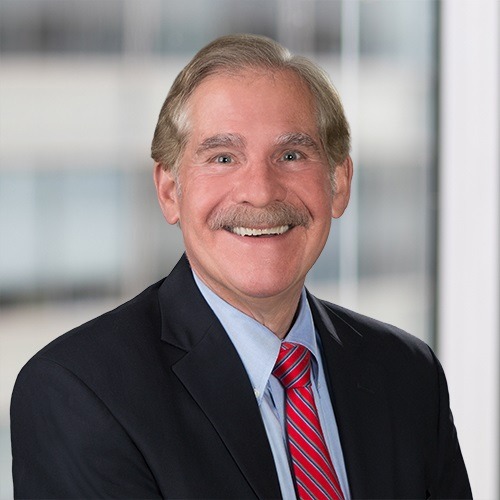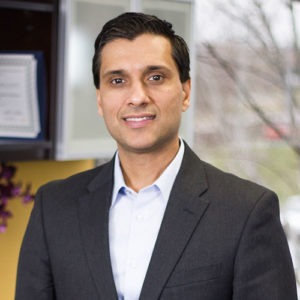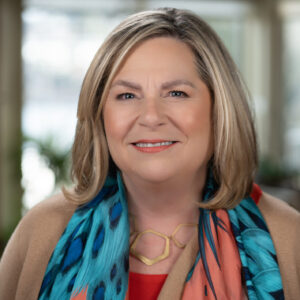Penalty paybacks: Funding projects for free
The Centers for Medicare & Medicaid Services (CMS) collects millions in civil money penalties (CMPs) each year. But Section 6111 of the Affordable Care Act (ACA) specifies that the bulk of the penalty funds “must be applied directly to promote quality care and the well-being of residents in nursing facilities.”1 Where is all that money going?
According to CMS regulations, “[90] percent of the collected civil money penalty funds [CMPs; placed in escrow and remaining after a final administrative determination]…must be used entirely for activities that protect or improve the quality of care for residents.”2 One of the 10 CMS regional offices imposed more than $18 million in CMPs in 2012. Thus, the amount of money that “must” be applied to promote quality care is substantial.
Despite this, 24 states had not approved any projects using CMP funds in 2012, according to CMS.3 That is about to change. On May 6, CMS published a proposed rule that, among other things, clarifies the uses of CMPs collected from skilled nursing facilities (SNFs). The proposed rule should provide a modicum of relief, especially to providers who have paid substantial amounts of money to the ever-increasing CMPs.
CMS determined that several states used collected CMP funds for prohibited purposes, such as survey and certification operations. According to CMS' proposed rule, one state maintained more than $15 million in fiscal year 2012. CMS noted that maintaining $15 million in collected CMP funds was not “desirable” and was inconsistent with ensuring that collected CMP funds are used to benefit nursing home residents.4
FREE FUNDS FOR WORTHY PROJECTS
“CMP funding is a viable source of monies for improvement projects in the post-acute and long-term care continuum. This is an avenue that [AMDA] state chapters have pursued to obtain funds for educational purposes or other endeavors with their corresponding state departments of health,” says Leonard Gelman, MD, CMD, and president of the AMDA—The Society for Post-Acute and Long-Term Care Medicine (AMDA) Board of Directors. “For instance, in New York, a few years ago, the New York Medical Directors Association, in collaboration with the New York State Department of Health, developed extensive and comprehensive guidelines, based upon AMDA guidelines, for physician practice and medical direction. Then, the New York State Department of Health and a consortium of organizations, including the New York Medical Directors Association, applied through the Department of Health to [CMS] for funds through the CMP system for statewide education of facilities about the guidelines. Significant CMP funds were subsequently acquired and the New York Medical Directors Association and New York State have begun this project, developing and producing the educational experience.”5
According to Beryl D. Goldman, PhD, RN, NHA, director for Kendal Outreach LLC, “Pennsylvania has been using CMP funds by supporting the efforts of the Pennsylvania Restraint Reduction Initiative (PARRI). This program offers free training and assistance to the more than 700 nursing homes throughout the Commonwealth on physical restraint elimination, chemical restraint reduction, fall management, bed and side rail safety, family/staff relationships, pressure ulcer prevention and dementia care training.”6 The CMP funds are also applied for another initiative within the PARRI entitled MAP-IT for Healthy Skin, a program focused on the prevention of pressure ulcers across the healthcare continuum.
Goldman adds: “It has been encouraging to see the improvement in communication across these environments, environments that previously operated in silos. This dialogue can only lead to improved outcomes for the people being served.”7
PERMITTED USES OF CMP FUNDS
All of the activities supported by CMP funds must be approved by CMS. Examples of permitted activities:
- Programs that support resident and family councils and other activities that foster quality care for residents;
- Joint training initiatives, such as training of staff and surveyors or technical assistance for facilities implementing quality assurance and performance improvement (QAPI) programs;
- Activities that provide support and protection for residents of a facility that is closing (voluntarily or involuntarily);
- Expenses related to relocating residents to home and community-based settings or other facilities when a facility closes; and
- The development and maintenance of temporary management or receivership capability, including recruitment, training, retention or other system infrastructure expenses (not including a temporary manager’s salary).
These are examples of some of the CMP-funded projects approved by Florida’s Agency for Health Care:
- Creating a calming environment with activity stations, gliders, music and visual reminders of the past for dementia patients ($20,000);
- A life enrichment project that provides life enrichment for residents by engaging them in culture change activities of their choosing, is person-centered, purposeful and satisfying ($25,000); and
- A “Community Courtyard Wellness Enhancement Project” that renovated existing underused courtyards into areas for residents and visitors to stimulate their senses, promote relaxation, decrease anxiety and promote wellness ($96,172).
“We are pleased to see projects that will improve the quality of care and quality of life of nursing home residents in Florida,” notes Florida Deputy Secretary Molly McKinstry.8 “These funds provide nursing home residents access to additional services and enriching activities.”
PROHIBITED USES OF CMP FUNDS
CMS will not approve the use of CMP funds for activities that fall under certain categories. CMP funds may not be used for:
- Capital improvement, such as replacing a roof, or for heating and staffing (CMS considers these items the responsibility of the nursing facility);
- Salary payments for a temporary manager, although funds may be used for recruitment, training and retention of temporary managers;
- A state’s long-term care ombudsman program’s consumer education program materials. CMP funds also may not be used to pay for the recruitment and/or training of ombudsman’s staff or volunteers (the Older Americans Act provides funding for such activities);
- Basic nursing home services or supplies, such as food or laundry services. However, funds can be used toward the salary of someone who is approved to work in the facility as part of a demonstration project, such as new uses of a wound specialist;
- Projects or instances where a conflict of interest either exists or appears to exist; or
- Long-term projects (that is, more than three years), although CMS will view each request on a case-by-case basis.
HOW TO APPLY FOR CMP FUNDS
Applying for CMP funds is a bifurcated process. First, a facility must apply to its respective state survey agency. Applicants should submit a clear, concise request with objective metrics and goals.
After the state survey agency completes its review, it will forward the request to CMS for a final determination. CMS will either approve or deny the request, or it will request additional information. CMS will provide feedback to the state survey agency within 45 days of receipt of the request. If CMS denies the request for CMP funds, there are no appeal provisions.
For facilities located in CMS Region IV, more specific guidance for requesting CMP funds has been made available, along with the form for submitting requests.9
Facilities located in other regions should check with their respective state survey agencies for an application. Requests should comply with the requirements noted in the publication referred to above.
COMMENTS ON THE PROPOSED RULE
The proposed rule clarifying the use of CMP funds has the potential to affect all providers. Consequently, in addition to applying for CMP funds, providers and other eligible entities are encouraged to file their comments regarding the proposed rule. Comments must be filed by June 30. Comments may be filed electronically at www.regulations.gov or by mail to Centers for Medicare & Medicaid Services, Department of Health & Human Services, Attention: CMS-1605-P, P.O. Box 8016, Baltimore, MD 21244-8016. (Be sure to include the regulation identifier number, which is RIN 0938-AS07.)
Requiring CMS to return CMP funds to nursing facilities and other eligible entities may be one of the more enlightened and productive measures authorized by Congress. After all, the stated purpose of CMPs is remedial, not punitive.10
REFERENCES
1. 76 Fed. Reg. 15120 (March 18, 2011).
2. 42 C.F.R. § 488.433.
3. Proposed Rule, Medicare Program; Prospective Payment System and Consolidated Billing for Skilled Nursing Facilities for FY 2015, 79 Fed. Reg. 25767 (May 6, 2014), available at: https://www.gpo.gov/fdsys/pkg/FR-2014-05-06/pdf/2014-10319.pdf. Last accessed: May 12, 2014.
4. 42 C.F.R. § 488.433, at note 1.
5. Email from Leonard Gelman, MD, CMD (president, AMDA) to Alan C. Horowitz, April 24, 2014. (copy on file with author).
6. Email from Beryl D. Goldman, PhD (director, Kendall Outreach Program) to Alan C. Horowitz, May 8, 2014, (copy on file with author).
7. Id.
8. Email from Molly McKinstry (deputy secretary, Florida Agency for Health Care Administration) to Alan C. Horowitz, May 9, 2014 (copy on file with author). Note that final approvals for the CMP projects are pending.
9. Region IV includes Alabama, Florida, Georgia, Kentucky, Mississippi, North Carolina, South Carolina and Tennessee.
10. See e.g., 59 Fed. Reg. 271 (Nov. 10, 1994) (The purpose of a CMP is to motivate providers to achieve and maintain substantial compliance.) See also, 42 C.F.R. § 488.402(a) (“The purpose of remedies is to ensure prompt compliance with program requirements.”).

Alan C. Horowitz, Esq., is a partner at Arnall Golden Gregory LLP, where he focuses his legal practice on regulatory compliance for skilled nursing homes, hospices and home health agencies and manages cases where the Centers for Medicare and Medicaid Services (CMS) has imposed an enforcement action. He is a former assistant regional counsel Office of the General Counsel, U.S. Department of Health and Human Services. As counsel to CMS, he was involved with hundreds of enforcement actions and successfully handled appeals before administrative law judges, the HHS Departmental Appeal Board and in federal court. He also has clinical healthcare experience as a registered respiratory therapist and registered nurse. He can be reached at alan.horowitz@agg.com.
Related Articles
Topics: Alan C. Horowitz , Executive Leadership









